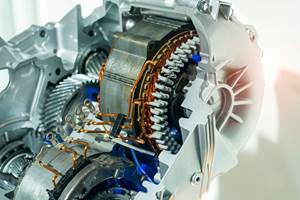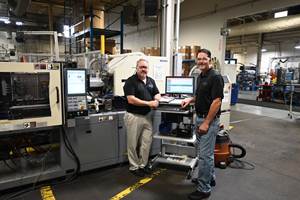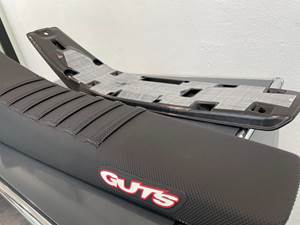Report: Plastics Driving Innovation in Automotive Sector
The increased use of 3D printing could pave the way for more innovative applications of plastic.
Look for more plastics in automotive applications thanks to an increased demand in lighter, more competitively priced vehicles, according to a new market report from Society of the Plastics Industry (SPI), Washington, D.C.
The report titled, “Plastics Market Watch: Plastics in the Fast Lane,” says that the plastics manufacturing industry is well-positioned to meet the potential demand of the automobile industry due to technological advances driving a growing manufacturing sector.
“The plastics industry, which is the third largest sector of U.S. manufacturing in dollar value of shipments, is in the vanguard of innovation and nowhere is that more conspicuous than in the automotive/transportation industry,” said Bill Carteaux, SPI president and CEO, noting that plastics make up about 50% of a modern automobile’s volume, but only 10% of its weight.
Plastics is widley used in interior compartments—instrument panels, interior trim and upholstery. Plastics are also used in lighting, bumper systems, fuel storage and delivery systems, ducts, fenders and exterior body panels, and more and more within engine compartments or other under-the-hood components.
SPI has previously noted that consumption of plastic goods grew at a record-breaking pace in 2013 (the latest government statistics available) to $267.3 billion, up 6.5% from $251 billion in 2012.
And another area of growth is the increased use of 3D printing and its derivatives, which could pave the way for more innovative applications of plastic.
CAR PURCHASING HABITS
So while plastics is being used more and more in automotive, how are car sales looking? Well, it seems that the Millennial Generation (born 1981 to 2000) is not all about owning the latest and greatest cars.
Other research in the report is based upon the work of Ken Gronbach, a marketing expert and author who studies demographic and cultural trends to predict buying habits. His research shows that the Millennial Generation has “no great love affair with the automobile and when asked what they would give up first, their car or their phone, their answer is almost always unanimous: their car.”
Still, the Baby Boomers aren’t turning over their keys just yet: “Some 80 million Baby Boomers will be living longer and show no signs of reducing their inhaling of transportation,” Gronbach said.
And while Millennials currently are not purchasing cars at a rate comparable to their parents and grandparents, the report projects that the so-called “Generation Y” will eventually buy more automobiles than the Baby Boomers.
The only downside to the increased use and demand concerns the shortage of skilled talent, according to the report. “New manufacturing jobs are significantly different from the rote assembly line work of earlier generations. Manufacturing is built upon advanced technologies that demand more advanced skills from workers,” Carteaux said. “Employees must be able to grasp engineering concepts, work with computers, make mathematical calculations and adapt to constant change. A manufacturing worker today must have the equivalent of two years of college, usually more, and the bar keeps rising.”
“Market Watch: Plastics in Automobiles” is the first in a series of reports being written by SPI that will explore key factors—including demographics, economics, policy, labor, culture and technology—that impact the plastics industry’s primary end markets. Beginning with automotive & transportation, the report series will continue with healthcare, packaging and housing & construction. To access a copy of the report, click here.
Related Content
PEEK for Monolayer E-Motor Magnet Wire Insulation
Solvay’s KetaSpire KT-857 PEEK extrusion compound eliminates adhesion and sustainability constraints of conventional PEEK or enamel insulation processes.
Read MoreAtop the Plastics Pyramid
Allegheny Performance Plastics specializes in molding parts from high-temperature resins for demanding applications as part of its mission to take on jobs ‘no one else does.’
Read MoreInjection Molded Tape and Resin “Sandwich” Technology Debuts
During its Mobility Days in Austria, Engel and KTM Technologies debuted an all-plastic molded motorcycle seat base produced via a tape-sandwich process that can run in a standard molding process.
Read MoreMolder Repairs Platen Holes with Threaded Inserts
Automotive molder ITW Deltar Fasteners found new life for the battered bolt holes on its machine platens with a solution that’s designed to last.
Read MoreRead Next
People 4.0 – How to Get Buy-In from Your Staff for Industry 4.0 Systems
Implementing a production monitoring system as the foundation of a ‘smart factory’ is about integrating people with new technology as much as it is about integrating machines and computers. Here are tips from a company that has gone through the process.
Read MoreSee Recyclers Close the Loop on Trade Show Production Scrap at NPE2024
A collaboration between show organizer PLASTICS, recycler CPR and size reduction experts WEIMA and Conair recovered and recycled all production scrap at NPE2024.
Read More
























